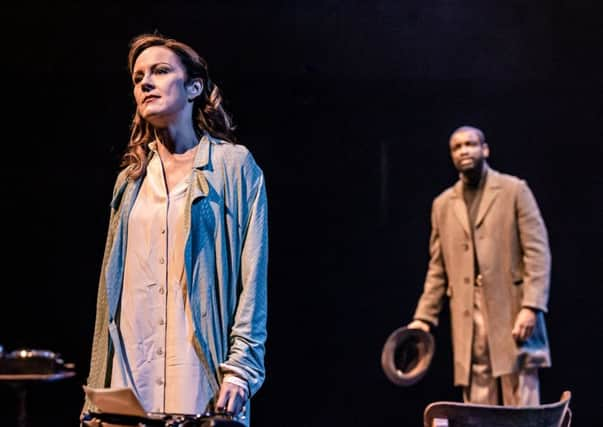Poignant and Brutal - Plenty at the Chichester Festival Theatre


Plenty depends on the ability of its all-consuming lead Susan Traherne to dazzle and Rachel Stirling does not disappoint.
And the 1977 script from David Hare is liberally described as a ‘modern classic’ - a play arguably more topical and in tune with audiences now than at its debut.
Advertisement
Hide AdAdvertisement
Hide AdThis is Traherne’s story. Poignant. Brutal. Mired in her mental turbulence of failing to find a satisfactory role in life after her adrenalin-filled stint as a courier with the Special Operations Executive in occupied France during the second world war.
In the 20 years that follow those opening war-time scenes we share her pain in pin-prick episodes as she searches with increasing desperation to find a new raison d’etre. Not for her children and a happy marriage no matter how hard she tries to lay claim to both.
Instead, this woman full of wit, intelligence and joie de vivre is imprisoned in the mundane - walled up by the banal in a world still stuffed-full of middle-aged men unable to express themselves beyond the confines of diplomatic language.
That she seeks no pity for herself may be to her credit but it also sows the seeds of the play’s limitations. Because this is a woman too self-indulgent and selfish to find much redemption in the eyes of the audience or to command more than their passing interest.
Advertisement
Hide AdAdvertisement
Hide AdFor Plenty to soar it demands a heroine who the audience can cheer on - and yet, for all the witty one-liners, that connection between stage and auditorium is never adequately built. So the dullness of her life infects as much as it illuminates. This may have been seen as a feminist play when it first surfaced. It is much more than that. The inner ennui that so many tuck away outside public view is given an unvarnished exposure through the sheer force of Traherne’s honesty.
The set which features images of the lead is perfectly pitched as we seek to understand the every thought which defines her - and her occasionally redeeming qualities like pleading for her husband’s job to his professional superiors.
The rest of the cast do exactly what is required of them - to be not quite as mesmerising or challenging as Susan herself.
But this is a play which would have been magnified in the intensely intimate Minerva Theatre next door. In its latest incarnation it has none of the presence, the empathy nor the strength of plot and purpose to hold the audience in the raptures that the main house Festival demands.
Review by Gary Shipton